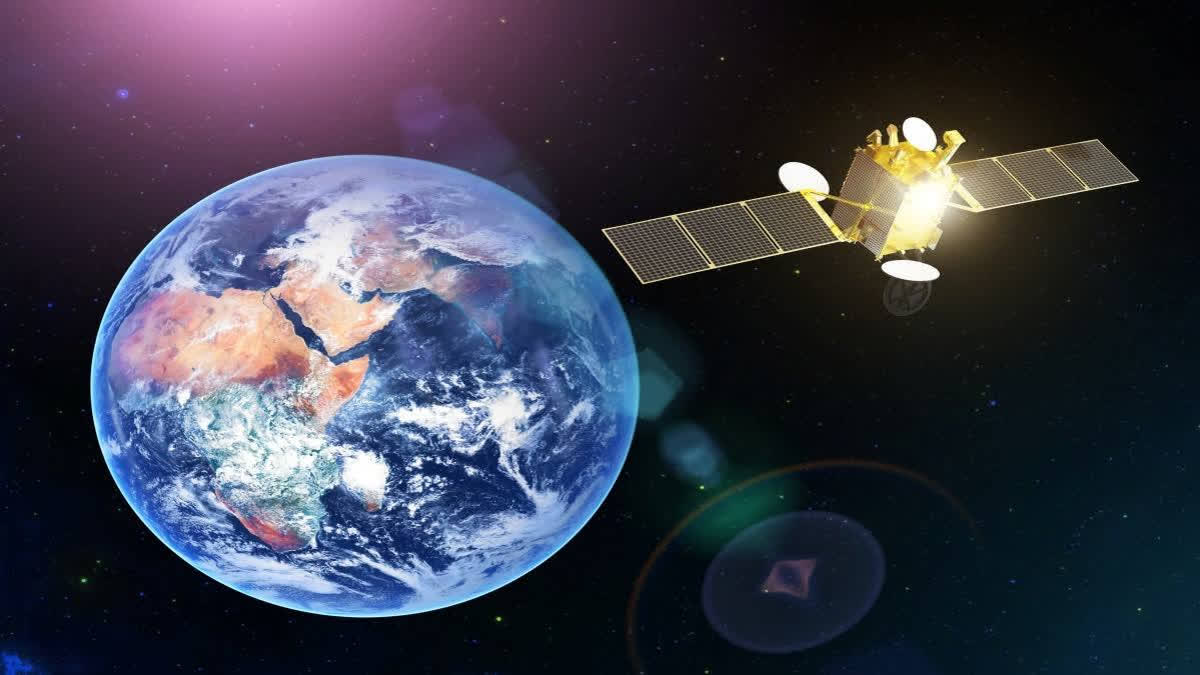New Delhi: “Wait and watch this space.” This is how Secretary (East) Jaideep Mazumdar responded when asked whether there will be any big-ticket announcements on space cooperation between India and Brunei during Prime Minister Narendra Modi’s visit to that Southeast Asian nation starting on Tuesday.
“We have received valuable support from Brunei in our space programme,” Mazumdar said while addressing the media on Monday ahead of Modi embarking on Brunei in what will be the first-ever bilateral visit by an Indian prime minister to that Southeast Asian nation. “We have three MoUs (memorandums of understanding) with Brunei in this area,” he said. “We have established a telemetry, tracking and command (TT&C) station in Brunei in 2000. This tracks and monitors all our eastward bound satellites and satellite launch vehicles.”
The three MoUs he mentioned cover cooperation in the operation of the TT&C centre for satellites and launch vehicles, and in the field of space research, science and applications.
“We have ongoing cooperation in telemetry, tracking and command,” Mazumdar said. “And we will take this forward. As technology develops, as our requirements develop, so also the need for enhancing those capabilities in the various centres we have worldwide for our telemetry, tracking and command increase or change. I don’t want to jump the gun here. But you will see some discussions and outcomes from that as well. Wait and watch this space.”
Why is Brunei seen as an important partner in space cooperation?
Brunei, though a small nation, is strategically located on the island of Borneo in Southeast Asia. Its geographical location near the equator makes it an attractive site for satellite ground stations and space monitoring infrastructure. Equatorial locations are ideal for launching and monitoring geostationary satellites, as these satellites orbit along the equatorial plane, providing stable and continuous coverage of specific regions. Ground stations positioned near the equator can effectively communicate with these satellites, offering better tracking, data reception, and control.
Brunei’s location also holds potential for future spaceport development, particularly for launching rockets into geostationary and polar orbits. Launching rockets close to the equator requires less fuel due to the rotational velocity of the Earth, making it a cost-effective launch site. Although Brunei has not yet developed such infrastructure, its political stability, open economy, and willingness to engage in international partnerships make it a potential candidate for future spaceport investments.
Brunei has been actively promoting its digital economy and enhancing its technological capabilities. This includes investments in advanced communications infrastructure, cybersecurity, and data analytics. As space activities increasingly intersect with the digital economy through satellite communications, Earth observation, and data-driven services, Brunei’s focus on technology positions it as a valuable partner.
The nation’s interest in advancing its digital ecosystem aligns with the interests of spacefaring countries looking to integrate space-based data into economic and developmental initiatives. Brunei’s digital readiness thus complements international space cooperation efforts, particularly in areas like satellite internet, remote sensing, and environmental monitoring.
Brunei is actively interested in leveraging space technology for environmental monitoring, resource management, and addressing climate change. The nation’s rich biodiversity and reliance on oil and gas make environmental protection a key priority. Space-based technologies, such as satellite imagery and remote sensing, offer valuable tools for managing natural resources, monitoring deforestation, and addressing environmental degradation.
Since when have India and Brunei been cooperating in the space sector, and what is the current status?
India and Brunei signed a bilateral agreement in August 1997 for setting up of Indian Space Research Organisation (ISRO)’s TT&C station in Brunei. This was established in the year 2000 and has been functioning since.
In July 2018, another MoU was signed in New Delhi that allows India to operate, maintain, and augment a ground station meant to support India’s space launches and satellite operations. In return, India will share its experience and expertise in space activities through the training of officials, scientists, and engineers from Brunei on space and satellite technology applications.
This agreement is being seen as a big win for New Delhi given the emerging Indo-Pacific alliance called the Quad comprising India, the US, Japan and Australia in the face of Chinese hegemony in the region.
According to the Spacewatch. global website, the cooperation agreement with Brunei is the latest in several arrangements India has made with other countries to establish satellite TT&C ground stations, as well as receiving stations for Indian Earth observation and remote sensing satellites.
Among these countries are Indonesia, the island of Sao Tome and Príncipe off of the west coast of Central Africa, and a remote sensing receiving station located in Vietnam for the use of the Association of South East Asian Nations (ASEAN), a posting on the website states.
India’s increasing focus on expanding its influence in Southeast Asia aligns with Brunei’s strategic importance in the region. As part of India’s Act East Policy, enhancing cooperation with ASEAN countries, including Brunei, is a key objective. By collaborating in space technology, India can strengthen its diplomatic ties with Brunei, showcasing its capabilities and building goodwill that extends beyond traditional areas of cooperation.
Brunei’s diplomatic neutrality and balanced foreign policy make it an ideal partner for India, allowing New Delhi to deepen its regional footprint without provoking geopolitical tensions. Strengthening space cooperation with Brunei supports India’s broader goals of establishing strong relationships in Southeast Asia and positioning itself as a reliable technology partner. It is because of all this that one can expect some significant announcements in terms of space cooperation during Prime Minister Modi’s visit to Brunei.
Read more: Modi To Embark On Visit To Brunei; First-Ever Bilateral Visit By Indian Prime Minister



